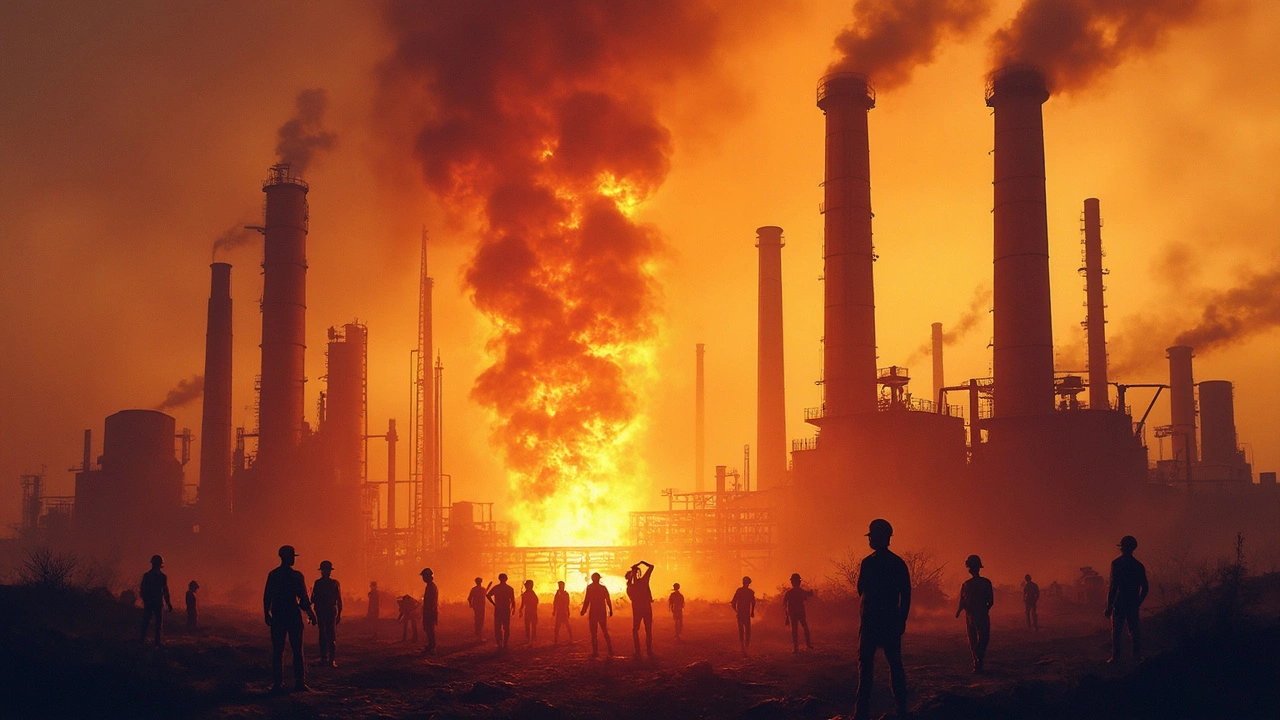Nucor – The Steel Giant Shaping Today’s Industries
When you think of steel, Nucor probably pops up first. It’s the biggest U.S. steelmaker by revenue, and its plants crank out everything from sheet metal for cars to beams that hold up warehouses. What’s striking is how fast it grew from a small scrap‑recycling outfit in the 1970s to a global force in under five decades. The company now runs more than a dozen facilities across North America and employs thousands of workers.
Built on the idea that scrap steel can fuel the future, Nucor relies heavily on electric‑arc furnaces (EAFs). Those furnaces melt scrap instead of burning iron ore, which slashes energy use and cuts emissions. The model proved so efficient that even traditional integrated steel producers have started to copy it. This focus on recycling has helped Nucor keep costs low while staying competitive against overseas giants.
In 2023, Nucor produced roughly 30 million tons of steel, a mix of flat, structural, and specialty grades. Customers range from auto makers to construction firms, and the company even supplies steel for wind turbines and renewable‑energy projects. By keeping a diverse product line, Nucor smooths out demand swings that hurt more narrowly focused rivals.
Why Nucor Stands Out
The secret sauce isn’t just the EAF technology. Nucor invests heavily in automation and data analytics, allowing plants to adjust furnace settings in real time. That means higher yields, fewer defects, and faster turnaround for orders. The company also runs a robust safety program that gives workers the tools and training they need to avoid accidents on the shop floor.
Sustainability is another pillar. Nucor reports that its steel has a 30% lower carbon intensity than the average U.S. product, thanks to the high scrap content and modern furnace controls. The firm is exploring hydrogen‑based reduction to push the carbon score even lower. For customers who need greener materials, Nucor’s low‑carbon steel can be a big selling point.
What Nucor Means for Plastic Producers
Plastic manufacturers often need steel for molds, extrusion screws, and processing equipment. When you buy a melt‑flow extruder, the barrel and screw are usually made from high‑grade steel that can handle temperature swings and pressure. Nucor’s consistent quality and quick delivery windows help companies like Urban Polymers keep their production lines running without costly downtime.
Beyond equipment, there’s a growing market for steel‑plastic hybrids – think reinforced panels for automotive interiors or durable packaging that blends the strength of steel with the flexibility of plastic. Nucor’s specialty steels provide the right balance of strength and formability for these applications. By partnering with a reliable steel supplier, plastic producers can experiment with new designs without worrying about material shortages.
Looking ahead, Nucor’s push toward greener steel aligns with the plastic industry’s sustainability goals. As regulations tighten on carbon footprints, manufacturers will favor partners that can prove low‑impact production. Nucor’s roadmap, which includes more recycled content and potential hydrogen usage, positions it as a go‑to source for eco‑friendly steel.
In short, Nucor isn’t just a steelmaker; it’s a key enabler for many sectors, including the plastic world. Its blend of innovation, sustainability, and reliable supply makes it worth watching whether you’re building a skyscraper or a high‑performance polymer product.
Is Nucor Buying U.S. Steel?
The potential acquisition of U.S. Steel by Nucor is stirring the steel industry. We'll explore the strategic reasons behind this move, the impact on the sector, and what it means for jobs and production. Understand why these industry giants are considering such a significant merger and what it could mean for the future of steel production in the U.S.
